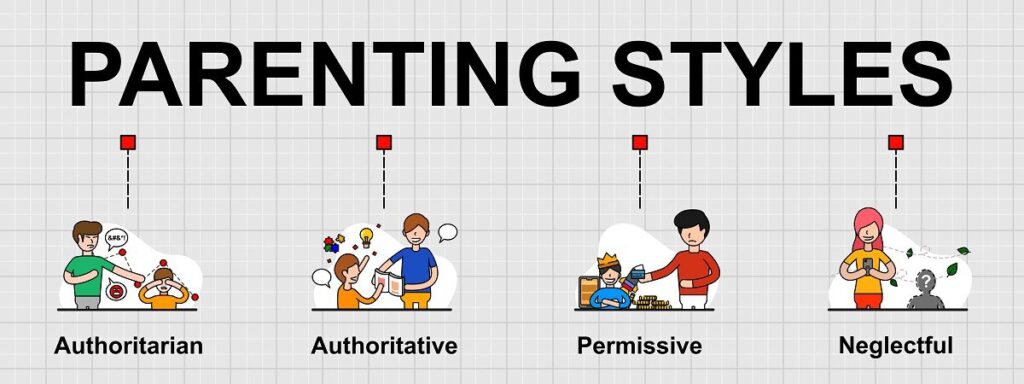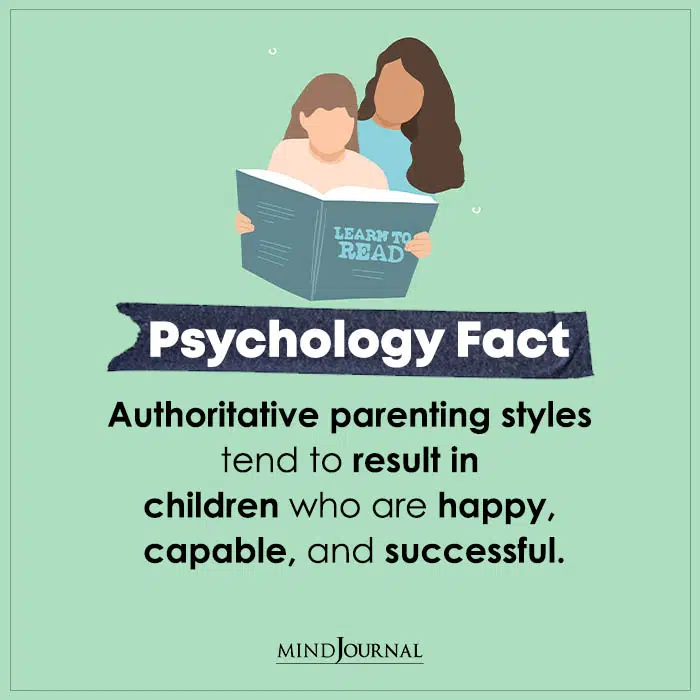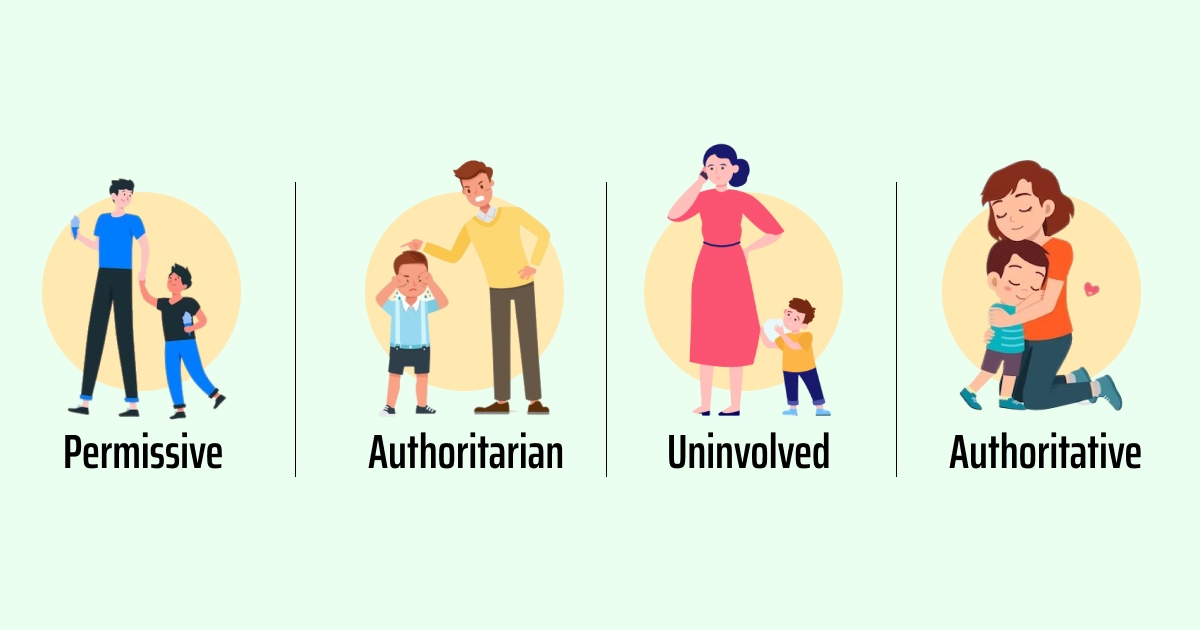Parenting can be a challenging journey as children don’t come with instruction manuals, you have to tackle every situation by yourself, so you must know what are parenting styles to answer your question, ‘What is my parenting style?’
Each parent’s style varies, with some being strict and others more lenient. Some parents are highly watchful, while others adopt a more hands-off approach.
What Are Parenting Styles?
Parenting styles are conceptual frameworks used to describe the diverse approaches parents adopt while raising their children. These styles encompass a wide range of parental behaviors, attitudes, and emotional dynamics that shape the environment in which children are raised.

For developmental psychologists, the influence of parents on child development has been a topic of enduring fascination. However, establishing direct cause-and-effect connections between specific parental actions and later behaviors in children proves to be a complex challenge.
Remarkably, certain children brought up in vastly diverse environments can exhibit strikingly similar personalities as they mature.
Understanding what are parenting styles helps you understand the different types of parenting styles.
Read More: What Is Parenting? 5 Steps To More Effective Parenting
Different Types Of Parenting Styles
The impact of your parenting style reaches far beyond your child’s self-esteem and physical health, extending to their interpersonal relationships with others.

Ensuring that your parenting style fosters healthy growth and development is crucial because the interactions and discipline you provide will leave a lasting influence on them throughout their lives.
Researchers have categorized parenting styles into four main types:
1. Authoritarian Parenting Style
In the authoritarian style of parenting, children are expected to adhere strictly to the rules and guidelines set by their parents. These parents tend to have high expectations and demand obedience without much room for negotiation or flexibility.
They often enforce rules and discipline firmly, using punishments as a means to enforce compliance.
In an authoritarian parenting approach, parents prioritize control and authority, expecting their children to unquestioningly follow their instructions and decisions.
As a result, children raised under authoritarian parenting may experience lower self-esteem, have difficulty making independent decisions, and struggle with assertiveness in social situations.
Read More: Negative Parenting Impacts A Child’s Mental Health
It is essential to note that each child is unique, and parenting styles can vary within a family based on individual circumstances.
2. Authoritative Parenting Style
In this parenting style, parents set clear expectations and guidelines for their children while also being responsive and supportive of their emotional needs.
Authoritative parents establish reasonable rules and boundaries for their children, but they also take the time to explain the reasons behind these rules.
Read More: Authoritative Parenting Style – Characteristics And Effects
They encourage open communication and welcome their children’s input and opinions, fostering a sense of autonomy and self-expression.

When enforcing rules, they are more likely to use positive reinforcement and constructive discipline rather than resorting to harsh punishments.
Children raised in an authoritative parenting style tend to develop a strong sense of self-esteem, independence, and social competence. They learn to make responsible decisions and develop effective problem-solving skills.
They are more likely to have positive relationships with others and exhibit better emotional regulation and self-control.
3. Permissive Parenting Style
In this parenting style, parents are highly nurturing and affectionate but often lack in setting clear boundaries or enforcing consistent rules and expectations for their children.

Permissive parents tend to be very responsive to their children’s desires and requests, often granting their wishes without much consideration or negotiation.
They prioritize maintaining a close and friendly relationship with their children, avoiding conflict and disciplinary actions that may strain the parent-child bond.
Children raised under permissive parenting may struggle with self-discipline, have difficulty following rules outside of the home, and may exhibit impulsive behaviors.
Read More: Permissive Parenting Style: Why It’s Bad For You And Your Child
The absence of clear guidelines and consequences can lead to a lack of structure. Understanding what are parenting styles and how they may affect the child’s ability to understand boundaries and limits is important.
4. Uninvolved Parenting Style
Uninvolved parenting, also known as neglectful parenting, is a style characterized by a lack of emotional involvement and minimal attention from parents towards their children.
In this parenting approach, parents are disengaged and show little interest in their children’s emotional needs, activities, or well-being.
Uninvolved parents tend to be emotionally distant and may have limited interactions with their children.
They may prioritize their own needs or interests over those of their children, leading to a lack of responsiveness and support.
Children in such environments may develop a range of behavioral and emotional problems. They may have difficulty forming healthy relationships with others, exhibit behavioral issues, and struggle academically.
Providing resources, guidance, and assistance can help parents become more engaged and responsive to their children’s needs, creating a more supportive and nurturing environment for healthy child development.
Read More: What Is Helicopter Parenting? 8 Effects It Has On Adults
What Is My Parenting Style?
Parenting is a complex and ever-evolving journey, and understanding your own parenting style is crucial in creating a nurturing environment for your child’s growth and development.
With various parenting styles ranging from authoritative and permissive to authoritarian and uninvolved, it’s essential to assess the dynamics and outcomes associated with each style to determine which approach aligns best with your values and your child’s needs.
By exploring the impact of different parenting styles and recognizing the potential strengths and weaknesses of your own approach, you can make informed decisions that promote your child’s emotional, social, and cognitive well-being.
Read More: Free Parenting Style Test
Embrace the opportunity to reflect on your parenting techniques and consider how to adapt and evolve your style to foster a healthy and loving relationship with your child.
To resolve this conflict, here are some of the powerful tips:
1. Reflect on Your Parenting Approach
Take the time to reflect on your interactions with your child. Consider how you communicate rules and discipline, and assess the balance between nurturing and setting boundaries.
2. Open Communication
Cultivate an environment of open communication with your child. Encourage them to express their feelings, thoughts, and concerns without fear of judgment or retribution.
3. Consistency is Key
Establish clear and consistent rules within the household. Ensure that your child understands the expectations and consequences of their actions, promoting a sense of structure and responsibility.
4. Empathy and Understanding
Practice empathy and understanding when addressing your child’s emotional needs. Validate their feelings and provide support during challenging situations, fostering a strong sense of emotional security.
5. Positive Reinforcement
Implement positive reinforcement strategies to encourage desirable behaviors. Celebrate achievements and milestones, nurturing a sense of accomplishment and self-worth in your child.
6. Time for Bonding
Dedicate quality time to bond with your child. Engage in activities that foster a strong emotional connection and create lasting memories, building a sense of trust and companionship.
7. Seek Support and Resources
Don’t hesitate to seek support from parenting communities, counselors, or books that provide valuable insights into effective parenting techniques and strategies.
Read More: Self Care For Parents: 10 Tips And Tricks To Keep Together
8. Personal Growth and Adaptation
Embrace personal growth and be open to adapting your parenting style based on your child’s individual needs and developmental stages.
Remember, every child is unique, and there is no one-size-fits-all approach to parenting. Your willingness to learn, ‘what is my parenting style’ will go a further way.
Your willingness to adapt and grow alongside your child plays a significant role in their overall development and well-being.
Read More: What is Nacho Parenting? 5 Must-Know Tips for Parents
A Word From Mind Family
Being adaptable and responsive to your child’s needs is key to creating a supportive and nurturing environment for their overall development.
As you journey through the dynamic landscape of parenting, remember that being adaptable and responsive to your child’s needs is the cornerstone of fostering a nurturing and supportive environment for their holistic development.
Understanding what are parenting styles is pivotal in shaping the way you guide and nurture your children.
If you find yourself leaning towards strictness, indulgence, or emotional distance, fret not. There are actionable steps you can take to recalibrate your approach.
Embracing different types of parenting styles in your interactions can build a solid foundation for your child’s emotional resilience and growth.
With every responsive decision, you sow the seeds of a flourishing relationship that will blossom into a resilient and confident individual.
Frequently Asked Questions (FAQs)
1. What are parenting styles?
Parenting styles refer to the diverse frameworks that describe the approaches parents adopt in raising their children. These styles encompass a range of parental behaviors, attitudes, and emotional dynamics that shape a child’s upbringing.
2. What are different types of parenting styles?
Different types of parenting styles include authoritarian, authoritative, permissive, and uninvolved/neglectful. Each style is characterized by specific approaches to discipline, nurturing, and setting boundaries within the parent-child relationship.
3. Why are parenting styles important?
Parenting styles play a crucial role in a child’s overall development, impacting their emotional well-being, social competence, and cognitive growth. Understanding the significance of parenting styles helps parents create nurturing and supportive environments that promote healthy growth and positive relationships.
4. Which is the best parenting style?
The ‘best’ parenting style is subjective and can vary depending on the unique needs and personalities of both the parent and the child. While authoritative parenting is often associated with positive outcomes, the effectiveness of each style depends on the child’s temperament and the specific demands of the family’s cultural and social context.
5. What is my parenting style?
Discovering your parenting style involves introspection and reflection on your approach to discipline, communication, and emotional support. Understanding the impact of your parenting style on your child’s development can help you adapt and refine your approach to create a more nurturing and supportive environment.


















Leave a Reply